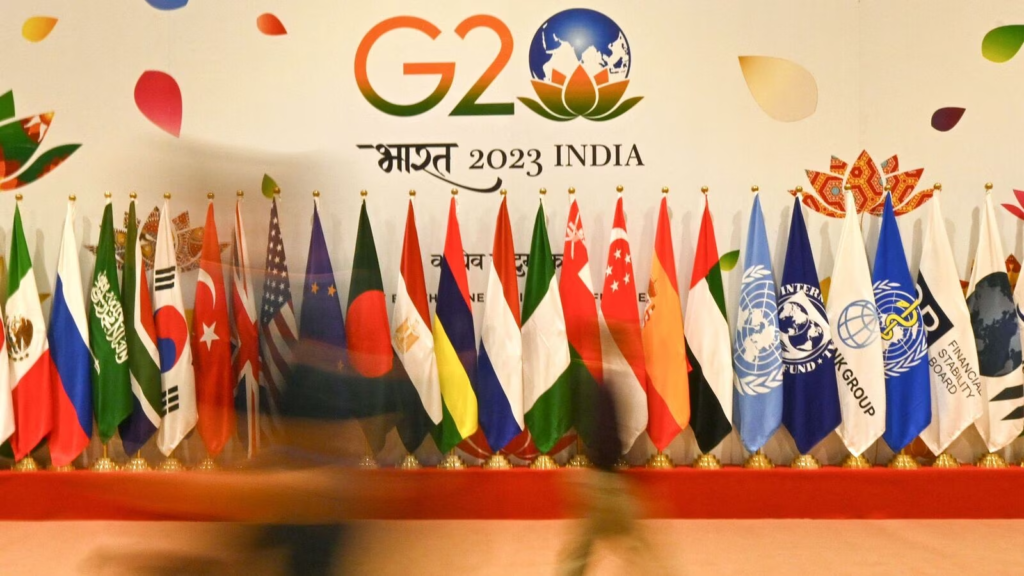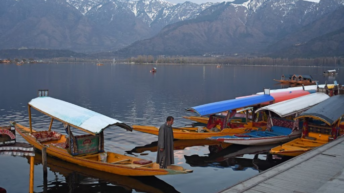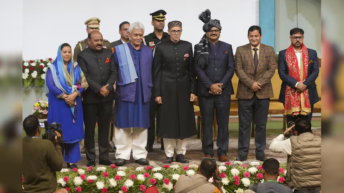|
Listen to article
Getting your Trinity Audio player ready...
|

Multilateralism, the practice of coordinating international efforts among multiple nations to address global challenges, has long been considered a cornerstone of global governance. It seeks to promote cooperation, ensure peace and security, and address pressing global challenges. However, in recent years, multilateralism has faced significant challenges that threaten its effectiveness and relevance.
The rise of populism and polarisation in the West, the predatory practices and aggressive foreign policy of China, and increasing geopolitical tensions across the world have all weighed down on multilateralism in recent times. In particular, the COVID-19 pandemic and the conflict in Ukraine have raised the most potent challenges to the future of multilateral cooperation. It is in this extremely difficult context that India assumed the presidency of G20, the grouping of the world’s 20 biggest economies and consequently, 20 of the most influential actors on the planet.
From the very inception of its presidency till date, India’s message through the G20 platform has been fairly clear. The world today needs a reformed multilateralism, cognisant of contemporary realities and requirements. It needs to move from globalisation managed by a few great powers, mainly for their own benefit, to human-centric globalisation in the service of all; from ignoring the needs of developing countries to placing them at the centre of focus, from virtue signaling on climate change to committing actual resources towards climate action. Most importantly, in a rather subtle way, India has sought to nudge countries to take a step back and revisit their maximalist positions on highly disruptive confrontations such as the one in Ukraine. The G20 Summit in Delhi, held in early September, has demonstrated the success of India in convincing the world on all these fronts and more.
The New Delhi Leaders’ Declaration was a testimony of India’s ability to forge consensus in the most turbulent times recorded during the years G20 has been in existence. Its 83 paragraphs, spread over 32 pages, and five annexures, laid a historic milestone for both Indian and global diplomacy alike. Besides finding a difficult compromise on the contentious Ukraine crisis, the G20 leaders agreed to bring on board the African Union (AU) as a full and equal member of the grouping, in line with Prime Minister Modi’s request made to them in June this year.
In many ways, the inclusion of AU in the G20 actually represents a much deeper and wider commitment, for the Indian presidency has been characterised by an unwavering focus on the Global South. It has provided a vocal advocacy for the interests of those who are not at the high table but are the most deserving beneficiaries of coordinated global action. This resonates with the Indian presidency’s theme of Vasudhaiva Kutumbakam – One Earth, One Family, One Future, and in fact can be traced back to the philosophy of Antyodaya – to leave no one behind, which has guided the action of the Modi government at home.
India has therefore called for attention and urgency in dealing with challenges faced by the Global South. The G20’s call for reviving the Black Sea grain export initiative is just one illustration in this regard. Moreover, central to its pitch for reformed multilateralism is India’s insistence on the need to reform financial institutions, such as the Multilateral Development Banks (MDBs). This further assumes critical importance in the context of facilitating greater capital inflows into green transition in the developing world.
The G20 this year has committed to tripling the renewable energy generation capacity worldwide by 2030, and highlighted the need for climate financing for the developing countries. It also recognised the importance of adopting Lifestyle for Environment (LiFE), a paradigm change advocated by India that highlights the need to turn to living traditions and practices that are inherently sustainable. These ideas emanate from the long-ignored Indic knowledge systems and way of life, and can serve as an important contribution towards building a truly sustainable future for the planet.
The Global South’s imprint on leading climate action was further illustrated by the Global Biofuels Alliance, which was launched on the sidelines of the New Delhi summit. This was an initiative spearheaded by India along with Brazil, in an effort to make ethanol and other biofuels a mandatory part of the global fuel mix, thereby contributing to the reduction of the amount of fossil fuels consumed across the world.
Even as it highlighted the need for a fair and just approach toward addressing the concerns, aspirations, and interests of the Global South, the Indian presidency has also showcased the extraordinary strengths and creative energies of the developing nations. It has highlighted the role of digital public infrastructure (DPI) and the importance of harnessing tech for public good. The G20 countries deeply appreciated the rapid strides made by India in this area, and collectively in their declaration, recognised that safe and trusted deployment of DPI can “enable service delivery and innovation”.
India’s presidency has also been characterised by a strong emphasis on the need to close the gender gap and catalyse women-led development. By taking head-on an area where the Global South might have to do more than others, India has shown that it is committed to working equally in all areas of development that concern the Global South. This illustrates an ability for leadership, and also evinces a genuine effort to uplift the lives of those who are otherwise not spoken of at the diplomatic high table.
Finally, one of the most unique features of the Indian presidency of G20, which has connected multilateralism, and even foreign policy in general, to the grassroots is the extraordinary efforts towards making the G20 a Janbhagidari movement. This year will go down as the first people’s G20, which witnessed thousands of events across the host country, involving millions of people from various walks of life. By recasting an elite diplomatic grouping as a mass movement, India has democratised the G20 and shown that the collective popular wisdom deserves to be heard. It has reminded the world that the distinction between local and global is not as pronounced as it is made out to be, a particularly useful idea when political polarisation threatens to widen that gulf in many parts of the world.
As India rises in the years to come, the G20 will serve as the inflection point that, to put it in External Affairs Minister Dr. S. Jaishankar’s words, made “India world-ready and the world India-ready”.






Add comment